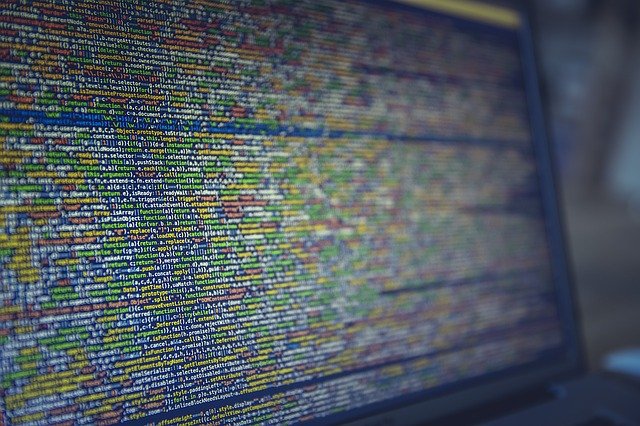Introduction
It’s no secret that hackers are becoming more and more sophisticated. With the advent of new technologies, they have more ways to access our personal information than ever before. While there is no surefire way to prevent all hacking attempts, there are some things you can do to protect your Windows 10 PC from potential attacks. In this blog post, we will explore five tips to help keep your computer safe from hackers.
What are the most common ways hackers get into Windows PCs?
There are a few common ways that hackers can get into Windows PCs:
- Through holes in the operating system: Hackers can exploit vulnerabilities in the Windows operating system to gain access to a PC.
- Through unpatched software: Hackers can target unpatched software on a PC and use it to their advantage.
- Through malicious code: Hackers can create malicious code that targets Windows PCs and allows them to take control of the system.
- Through phishing scams: Hackers can use phishing scams to trick users into giving them their personal information, which they can then use to gain access to their PCs.
- By physically accessing the PC: If a hacker has physical access to a PC, they can install malware or even just copy data off of the hard drive.
How can I prevent hackers from getting into my PC?
There are a few things you can do to prevent hackers from gaining access to your PC:
- Install and update antivirus and firewall software. This will help to block and detect malicious activity.
- Be cautious when opening emails and attachments, especially from unknown senders. Hackers often use email as a way to deliver malware.
- Keep your software up to date. Hackers exploit security vulnerabilities in outdated software to gain access to systems. So it’s important to install updates as soon as they become available.
- Use strong passwords and change them regularly. Hackers can easily crack weak passwords, so make sure yours are strong and unique. Be sure to change them on a regular basis.
What should I do if my PC is hacked?
If you think your PC has been hacked, the first thing you should do is disconnect from the internet. This will prevent the hacker from doing any further damage and give you time to assess the situation.
Next, run a virus scan with your anti-virus software. This will help to identify any malicious software that may have been installed on your system. If you don’t have anti-virus software installed, there are several free options available online.
Once you’ve scanned for viruses, it’s important to change any passwords that may have been compromised. This includes passwords for email accounts, social media accounts, and online banking. Choose strong passwords that are difficult to guess, and make sure to use different passwords for each account.
Finally, contact your computer’s manufacturer or a qualified IT professional to help you resolve the issue and secure your system against future attacks.
Use a Firewall
Use a Firewall
A firewall is a critical piece of security software that helps protect your computer from outside attacks. By blocking incoming connections from known or suspected malicious sources, a firewall can help keep your computer safe from harm. In most cases, your router likely has a built-in firewall that can be enabled to provide this protection, or you can use third-party firewall software. Either way, make sure you have a firewall turned on and configured properly to help protect your computer from hackers.
Use an Antivirus Program
An antivirus program is a software that helps protect your computer from malware, which is short for “malicious software.” Malware can include viruses, worms, Trojans, and other types of malicious code that can harm your computer or steal your personal information.
You should always have an antivirus program installed on your computer and running in the background to help protect you from these threats. There are many different antivirus programs available, so you can choose the one that best meets your needs. Some antivirus programs are free, while others must be purchased.
Once you have an antivirus program installed, make sure to keep it up-to-date by downloading and installing the latest virus definitions (also called “signatures”). These definitions allow the program to detect and remove the latest threats.
Use a VPN
If you want to protect your Windows PC from hackers, one of the best things you can do is use a VPN.
A VPN will encrypt your traffic and make it harder for hackers to snoop on your activities. Additionally, a VPN can help to hide your IP address and make it more difficult for hackers to target you. There are many different VPN providers out there, so be sure to do your research and find one that suits your needs.
Use Two-Factor Authentication
Two-factor authentication (2FA) is an important security measure that can protect your Windows PC from hackers. 2FA adds an extra layer of security by requiring you to enter a second factor, such as a code from a mobile app, in addition to your password when logging in.
If a hacker obtains your password, they will still be unable to access your account unless they also have access to the second factor. This makes it much more difficult for hackers to gain access to your account and helps protect your Windows PC from being hacked.
To set up 2FA on your Windows PC, you’ll need to use a Microsoft account or an Authenticator app. Microsoft accounts are free and easy to set up. Once you have a Microsoft account, you can enable 2FA by going to the Security settings page and selecting “Two-step verification” under the Security basics section.
If you don’t want to use a Microsoft account, you can download an Authenticator app, such as Authy or Google Authenticator, which will generate codes for you when logging in. Once you have downloaded an Authenticator app, setting up 2FA is straightforward – just follow the instructions within the app.
Whichever method you choose, using 2FA is a simple and effective way to help protect your Windows PC from hackers.
Keep Your Operating System and Software Up-to-Date
Keeping your operating system and software up-to-date is one of the best ways to protect your Windows PC from hackers. By ensuring that you have the latest security patches installed, you can help mitigate the risk of potential attacks. In addition, using only trusted and reputable sources for your software can also reduce the likelihood of unwittingly downloading malware. Finally, keeping your personal information secure by using strong passwords and encrypting sensitive data can help to keep your PC safe from prying eyes.
Be Wary of Phishing Emails
Phishing emails are a common way for hackers to gain access to your PC. They can be very difficult to spot, as they often look like genuine emails from companies or organizations that you may use.
If you receive an email that looks like it could be phishing, do not click on any links or download any attachments. Instead, forward the email to the company or organization that it claims to be from. You can also report the phishing email to the Anti-Phishing Working Group at www.antiphishing.org.
To protect yourself from phishing emails, it is important to keep your antivirus software up-to-date and be cautious when opening emails from unknown senders.
Conclusion
There are many ways to protect your Windows 10 PC from hackers, but the most important thing is to keep your software up to date. Hackers are constantly finding new ways to exploit vulnerabilities in software, so it’s important to make sure you have the latest security patches installed. You should also use a strong antivirus program and firewall, and avoid clicking on links or opening attachments from unknown sources. By following these simple tips, you can help keep your PC safe from hackers.









FIND US ON SOCIALS